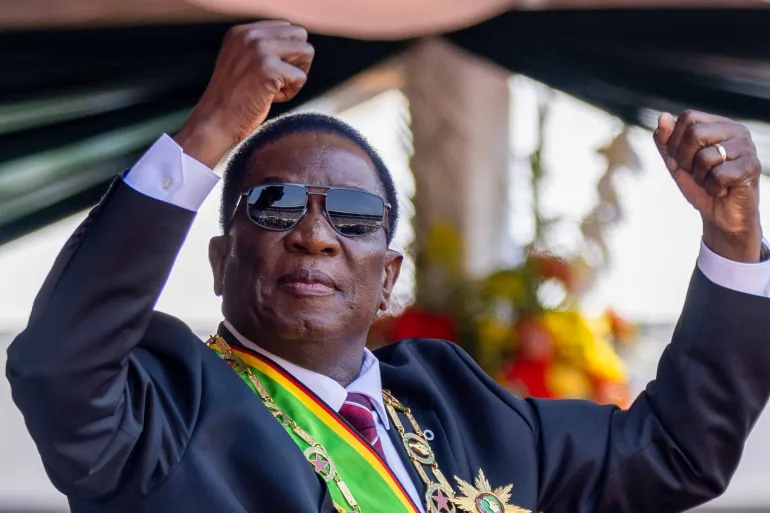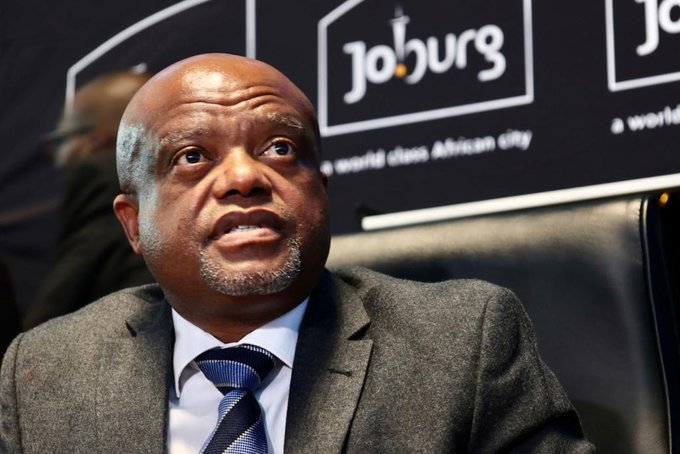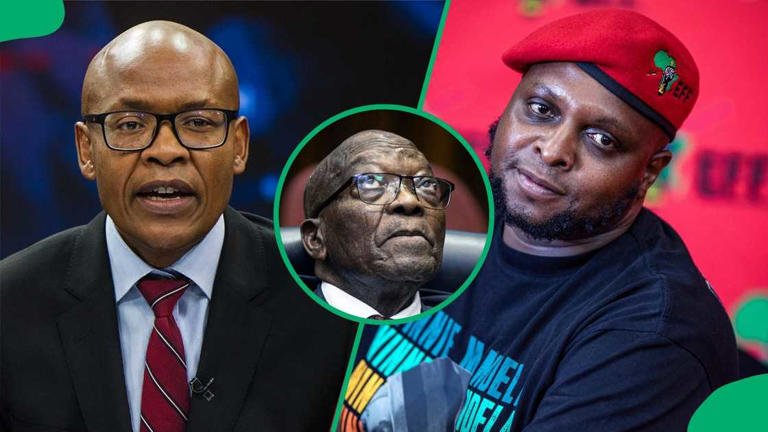As Zimbabwe prepares to host the Southern African Development Community (SADC) Summit on August 17-18, 2024, the region finds itself at a critical juncture. This year’s summit will mark a significant leadership transition as President Emmerson Mnangagwa of Zimbabwe is set to assume the SADC chairmanship from Angola’s João Manuel Gonçalves Lourenço. The transition is steeped in both symbolic and practical importance, as Mnangagwa’s leadership comes at a time when the region is beset by economic difficulties, political tensions, and complex international relations. This analytical piece delves into the myriad challenges that Mnangagwa will face as he takes on this critical role, examining how his leadership might shape the future of SADC and Zimbabwe’s standing within it.
The SADC Region: A Landscape of Complex Challenges
The SADC region, comprising 16 member states, is home to over 360 million people. It is a region rich in natural resources and cultural diversity, yet it is also plagued by deep-seated challenges that threaten its stability and development. The ongoing conflict in the Democratic Republic of Congo (DRC), economic instability, unemployment, and political strife are just a few of the issues that SADC must confront. Mnangagwa’s upcoming chairmanship puts him in a position where his decisions and policies could significantly influence the region’s trajectory.
The Conflict in the Democratic Republic of Congo
One of the most pressing issues on the SADC agenda is the ongoing conflict in the Democratic Republic of Congo (DRC). Despite numerous peace efforts, the situation in the eastern DRC remains volatile. The resurgence of armed groups such as the M23 and the Allied Democratic Forces (ADF) has led to widespread violence, displacement, and human rights abuses. In November 2022, the Luanda Roadmap, a peace agreement brokered by Angola and endorsed by SADC, aimed to de-escalate the conflict. However, the violence has persisted, with reports of continued clashes and atrocities.
By July 2024, the United Nations estimated that over 5.5 million people had been displaced due to the conflict, with neighboring countries, including Tanzania, Zambia, and Angola, bearing the brunt of the refugee crisis. The situation in the DRC poses a significant challenge to regional stability, and Mnangagwa’s ability to lead SADC in addressing this crisis will be a critical test of his leadership. Given Zimbabwe’s historical involvement in the Second Congo War (1998-2003), during which Zimbabwean forces were deployed to support the DRC government, Mnangagwa’s leadership will be scrutinized for any perceived biases or failures to act decisively.
Economic Challenges and Unemployment in Zimbabwe
Beyond the DRC, Mnangagwa faces significant challenges at home. Zimbabwe’s economic situation is dire, with hyperinflation, unemployment, and a weakening currency contributing to widespread poverty and social unrest. According to the Zimbabwe National Statistics Agency (ZimStat), inflation surged to 176% in July 2024, exacerbating the economic hardship faced by millions of Zimbabweans. The informal sector now accounts for the majority of employment, as formal job opportunities have dwindled amid ongoing economic crises.
Unemployment remains one of Zimbabwe’s most pressing issues, with estimates suggesting that up to 90% of the working-age population is either unemployed or engaged in informal work. This has led to significant disillusionment among the populace, with many losing faith in the government’s ability to provide effective solutions. The economic situation has also strained social services, with healthcare and education systems struggling to cope with the demands of a population in distress.
As Mnangagwa takes on the SADC chairmanship, he must navigate the delicate balance between addressing Zimbabwe’s internal economic challenges and contributing to regional economic development. His leadership in SADC will be crucial in shaping policies that promote economic cooperation, investment, and sustainable development across the region. However, Zimbabwe’s own economic woes may undermine his ability to effectively champion these causes.
Political Tensions: The 2023 Elections and Opposition Agitation
Zimbabwe’s political landscape remains deeply polarized, with significant tension between the ruling ZANU-PF party and opposition groups, particularly the Citizens Coalition for Change (CCC), led by Nelson Chamisa. The August 2023 general elections were marred by allegations of voter suppression, electoral fraud, and political violence. These allegations have cast a long shadow over Mnangagwa’s presidency, with opposition forces questioning the legitimacy of his leadership.
In March 2024, the CCC submitted a formal petition to the African Union (AU) and SADC, calling for an independent investigation into the 2023 elections. The petition cited numerous irregularities, including the disenfranchisement of urban voters, biased state media coverage, and the use of state resources to influence the outcome. The opposition’s efforts to delegitimize Mnangagwa’s presidency have not only deepened domestic political divisions but also raised concerns about Zimbabwe’s role in SADC.
As Mnangagwa prepares to assume the SADC chairmanship, there are growing concerns that these internal political conflicts could undermine his ability to lead effectively on the regional stage. The opposition’s push to delegitimize Mnangagwa, coupled with ongoing political unrest, could weaken Zimbabwe’s position within SADC and complicate efforts to build regional consensus on key issues.
Zimbabwe-Zambia Tensions: The Mumba Report and Putin Connection
A significant source of tension in the region is the strained relationship between Zimbabwe and Zambia. This tension has been exacerbated by a series of diplomatic incidents, most notably the fallout from the Mumba Report. Released in October 2023 by the SADC Electoral Advisory Council (SEAC), the Mumba Report was authored by Nevers Mumba, a former Zambian vice president appointed by Zambian President Hakainde Hichilema to lead the observer mission for Zimbabwe’s 2023 elections. The report was highly critical of Zimbabwe’s electoral process, highlighting instances of voter intimidation, lack of transparency, and biased state media coverage.
Zimbabwe’s government, led by Mnangagwa, vehemently rejected the findings of the Mumba Report, accusing Zambia of interference in its internal affairs. The report’s release led to a diplomatic rift between the two countries. The situation was further inflamed in early 2024 when reports emerged that Mnangagwa had privately complained to Russian President Vladimir Putin about Zambia’s alignment with the United States. Mnangagwa allegedly expressed concerns that Zambia’s pro-Western stance was part of a broader strategy to isolate Zimbabwe within the region.
This revelation, which quickly became public, was met with outrage in Lusaka. The Zambian government responded with a strongly worded statement, accusing Zimbabwe of attempting to undermine Zambia’s sovereignty and its right to conduct an independent foreign policy. The diplomatic row escalated, with both countries trading barbs in the media and at international forums. The tension between Zimbabwe and Zambia has raised concerns about the potential for further regional instability, particularly if the dispute spills over into broader SADC discussions.
Leadership Amidst Crisis: The Role of Mnangagwa as SADC Chair
As Mnangagwa prepares to take the helm of SADC, his leadership will be tested on multiple fronts. The ongoing conflict in the DRC, the economic challenges facing the region, and the diplomatic tensions between Zimbabwe and Zambia are just a few of the issues that will demand his attention. Moreover, Mnangagwa’s leadership will be scrutinized in the context of Zimbabwe’s domestic political climate, where opposition forces continue to challenge his legitimacy.
In navigating these challenges, Mnangagwa will need to demonstrate a capacity for diplomatic engagement, conflict resolution, and economic management. His ability to bring together SADC member states in a cohesive and coordinated response to regional crises will be crucial in determining the success of his chairmanship. However, the complex interplay of domestic and regional factors could complicate his efforts to lead effectively.
International Relations and Regional Stability
Mnangagwa’s assumption of the SADC chairmanship also places Zimbabwe’s international relations under a microscope. Relations with Western nations, particularly the United States and the European Union, remain strained due to ongoing sanctions and concerns over human rights abuses and governance issues. Mnangagwa has made efforts to reengage with these countries, seeking to attract investment and aid, but progress has been slow and fraught with challenges.
The tension with Zambia, fueled by the Mumba Report and Mnangagwa’s remarks to Putin, has further complicated Zimbabwe’s regional standing. The diplomatic row with Zambia has highlighted the fragility of relations within SADC, raising questions about whether Mnangagwa can effectively mediate conflicts and promote regional unity. As SADC chair, Mnangagwa will need to work to de-escalate tensions with Zambia and restore trust within the regional bloc.
Moreover, Mnangagwa’s chairmanship will be closely watched by the international community, particularly as SADC navigates complex issues such as the DRC conflict, economic development, and political governance. The success or failure of his leadership could have far-reaching implications for Zimbabwe’s international relations and its role within the broader African and global contexts.
Conclusion: A Leadership Test for Mnangagwa and Zimbabwe
Zimbabwe’s upcoming chairmanship of SADC presents both an opportunity and a challenge for Emmerson Mnangagwa. As he steps into this critical role, Mnangagwa will be tasked with addressing some of the most pressing issues facing the Southern African region, from the ongoing conflict in the DRC to economic instability and political tensions. However, his ability to lead effectively will be shaped by a complex interplay of domestic and regional factors, including the opposition’s efforts to delegitimize his presidency and the diplomatic tensions with Zambia.
The success of Mnangagwa’s chairmanship will depend on his capacity to navigate these challenges with skill and diplomacy. As the SADC Summit approaches, the region—and the world—will be watching closely to see whether Zimbabwe can rise to the occasion and provide the leadership needed to guide Southern Africa through these turbulent times. Mnangagwa’s leadership will be a defining test of his presidency and his legacy, with implications that will resonate far beyond Zimbabwe’s borders.






